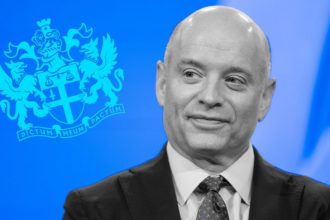Gregory P. Crawford is President of Miami University of Ohio.
Companies want to hire five-star employees. Five stars mean the best of the best, whether you’re referring to an athlete, restaurant, hotel, movie or product review. As a university president, I recommend you search the resume of a recent graduate for these experiences that can create five-star employees beyond what they learned in the classroom: research, study abroad, internships, creativity and leadership. Students who choose these real-world mindset experiences bring assets beyond the depth of their degree and the breadth of their liberal arts. They will enrich the workplace from day one.
Research
Higher education typically offers many opportunities to engage in meaningful research and discovery in any major, not just to learn about others’ achievements. Students can become creators of knowledge, not just absorbers. For example, STEM students learn to form a hypothesis, design and conduct an experiment and evaluate results. Humanities students likewise follow a systematic, critical approach. Social science students might engage in interpretive research on social contexts and human experiences.
Research often generates a report, presentation or publication. Even failure or unexpected results can stimulate growth when students learn to pivot and problem-solve. They gain flexible perseverance, not giving up easily but recognizing when to change course. This is valuable preparation for the workplace, where they need more than textbook knowledge.
An interviewer might probe what they learned from research. Can they tell a story about the pathway to their research finding? How did they decide to pivot? What did they learn about themselves by working on a problem no one has solved before?
Study Abroad
Studying abroad is an immersive experience in an unfamiliar culture, often where students lack the advantages they enjoy in their own country. They must engage people from different backgrounds and perspectives daily. They seek both to understand and to be understood. They gain the virtue of mature openness, welcoming others’ ideas and insights while accepting responsibility for their choices. This is valuable preparation for the workforce, where global engagement and cultural understanding are vital for success.
An interviewer might ask why the student was motivated to study abroad. How did they feel they were treated as an outsider? How did it change their perspective when they returned home?
Internships
Internships are often an integral part of undergraduate education. Students participate in work projects and teams as contributing members. They develop professionalism and workplace etiquette habits through engaging with colleagues of multiple generations and backgrounds, taking responsibility for their work product and pitching ideas. They gain the virtue of practical wisdom and the habit of considering how abstract ideas translate to effective real-world action. This is valuable preparation for the workplace where learning becomes doing, and theory becomes practice.
An interviewer might ask them to talk about their contribution to a team. How did they communicate suggestions or respond to alternative ideas? How did the experience impact their career goals? What work ethic did they demonstrate?
Creativity
Creative thinking is routinely among the skills employers seek most. College students find many ways to learn and practice creativity in their curriculum and beyond, from art, music, acting, design and gaming to devising a business plan that moves an idea to the marketplace. They gain the virtue of optimistic wonder and confidence that the power and beauty of the world mean anything is possible. This is valuable preparation for the workforce, where innovation and entrepreneurship are indispensable.
An interviewer might ask for an example of how their creativity led to a novel product, process, program or idea. What inspires them to look beyond the status quo? What is the biggest challenge to turning imagination into reality?
Leadership
Leadership involves character and people skills that make an individual robot-proof. Leadership opportunities abound on campus with social clubs, student government, service organizations, athletic teams, group projects, committees and startup businesses. Students learn that leadership means greater responsibility, not greater power and service to others, not self-aggrandizement. They must uphold a vision that inspires others, cultivate buy-in and respect everyone’s contribution. They gain the virtue of accountable empathy, aware that they are engaging fellow human beings while holding them responsible for their role in the common project. This is valuable preparation for the workforce, where the group’s success includes each person’s success.
An interviewer might ask how their understanding of leadership evolved. How did their experience change their perspective on other leaders? How did the group make decisions (e.g., consensus or majority)? How did they manage conflict? How did they pass leadership to the next person?
Here’s an asterisk to add to the five stars. For the next several years, graduates will be part of the cohort that experienced the Covid-19 disruption of their higher education, and the effects will continue for those currently in high school. The impact of the pandemic, in addition to social media and socio-political polarization, has influenced the mental health and wellness of young adults entering the workforce.
Companies must be prepared to assist new employees, especially during onboarding and early years, to fill preparedness gaps because this group might not have had these five-star opportunities. Making reasonable accommodations and collaborating with employees to shape their optimal work experience will bolster performance and mental wellness.
Pandemic challenges can also reveal individuals with virtues of flexible perseverance, mature openness, practical wisdom, optimistic wonder and accountable empathy. Interviewers might ask how the experience impacted them and how they kept learning, growing and sustaining their wellness. Did they participate in volunteer work? Did they gain technology skills? How did they stay in touch with classmates and friends? How did they assist others who were experiencing challenges? What will they tell younger people about what they did during the pandemic?
Workers in the future—beginning now—need qualities and skills that machines cannot replicate. They can acquire those, beyond degrees and GPAs, as part of their higher education. When you seek to hire the best of the best, consider whether the applicant has these five stars that equip them to make a powerful contribution from Day One.
Forbes Business Council is the foremost growth and networking organization for business owners and leaders. Do I qualify?
Read the full article here





